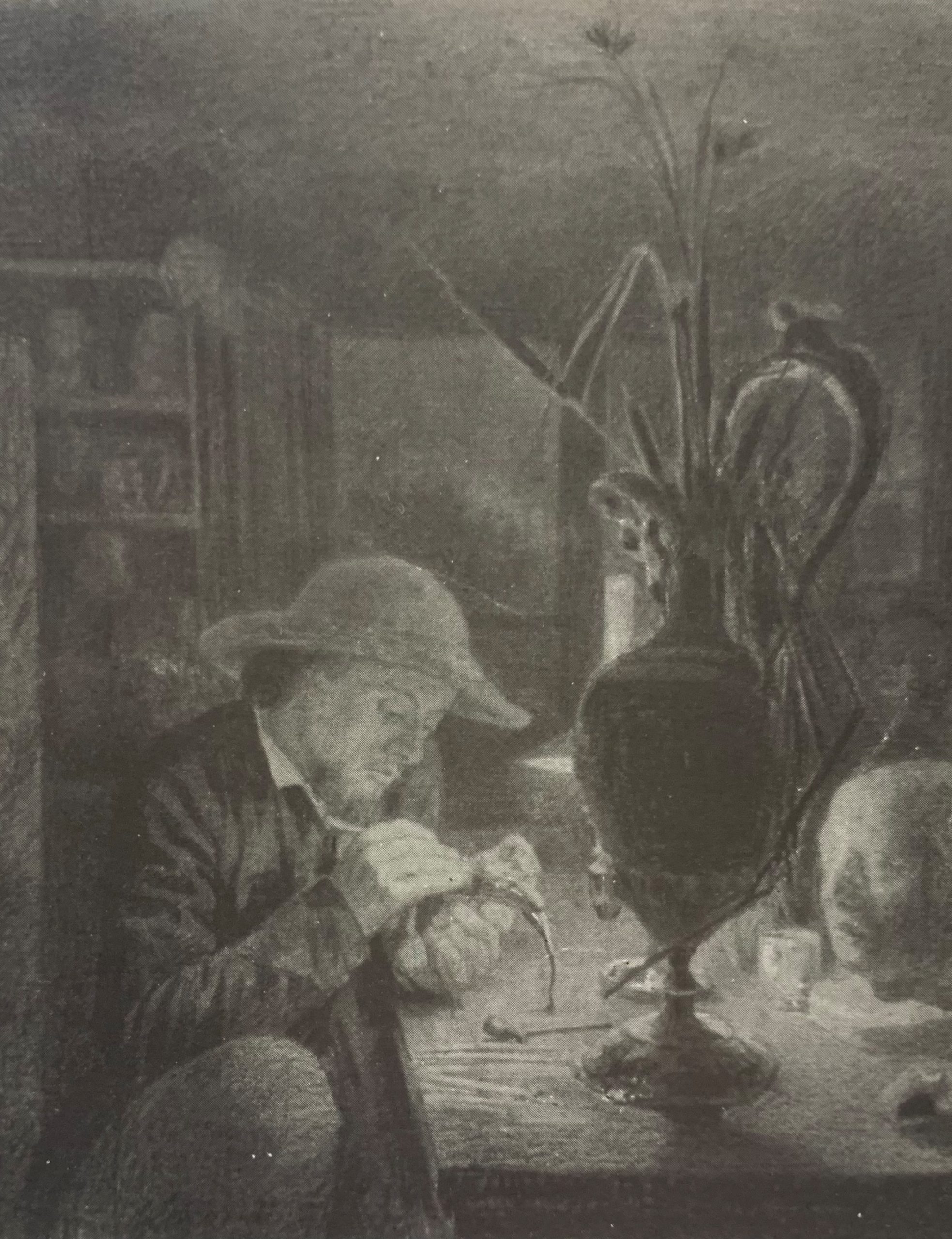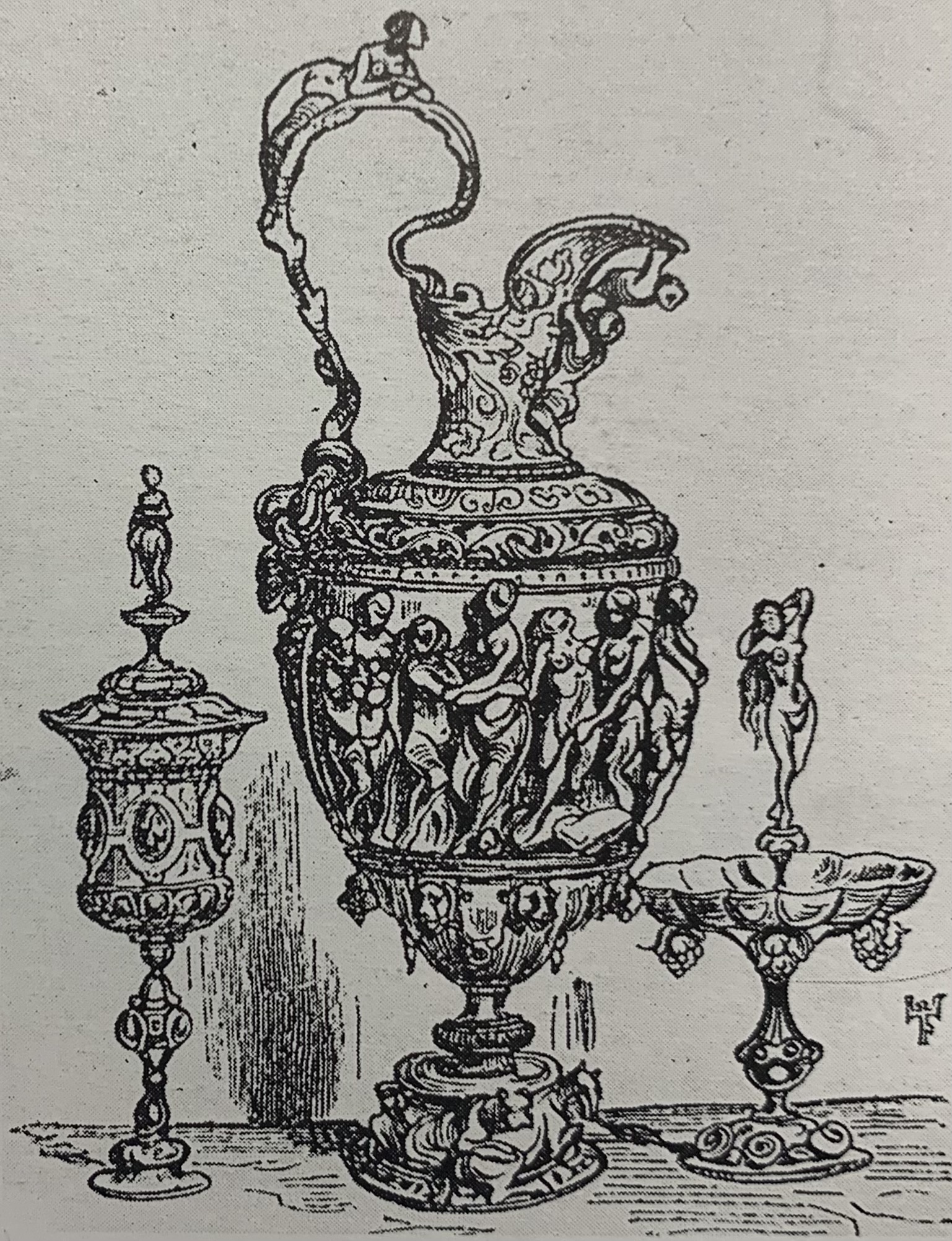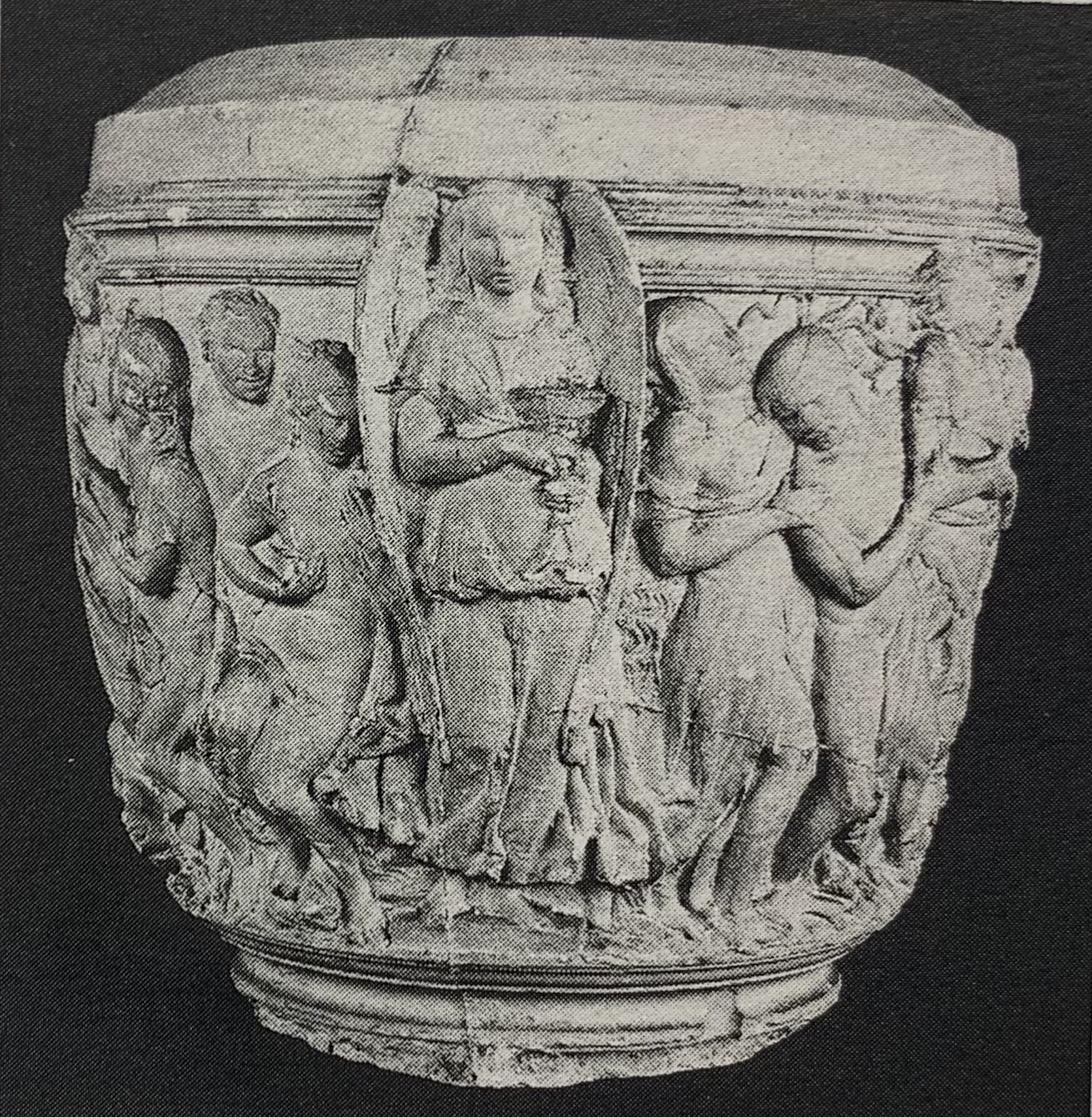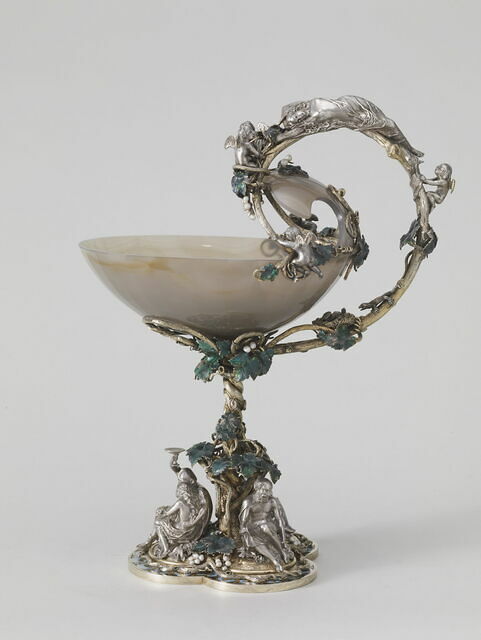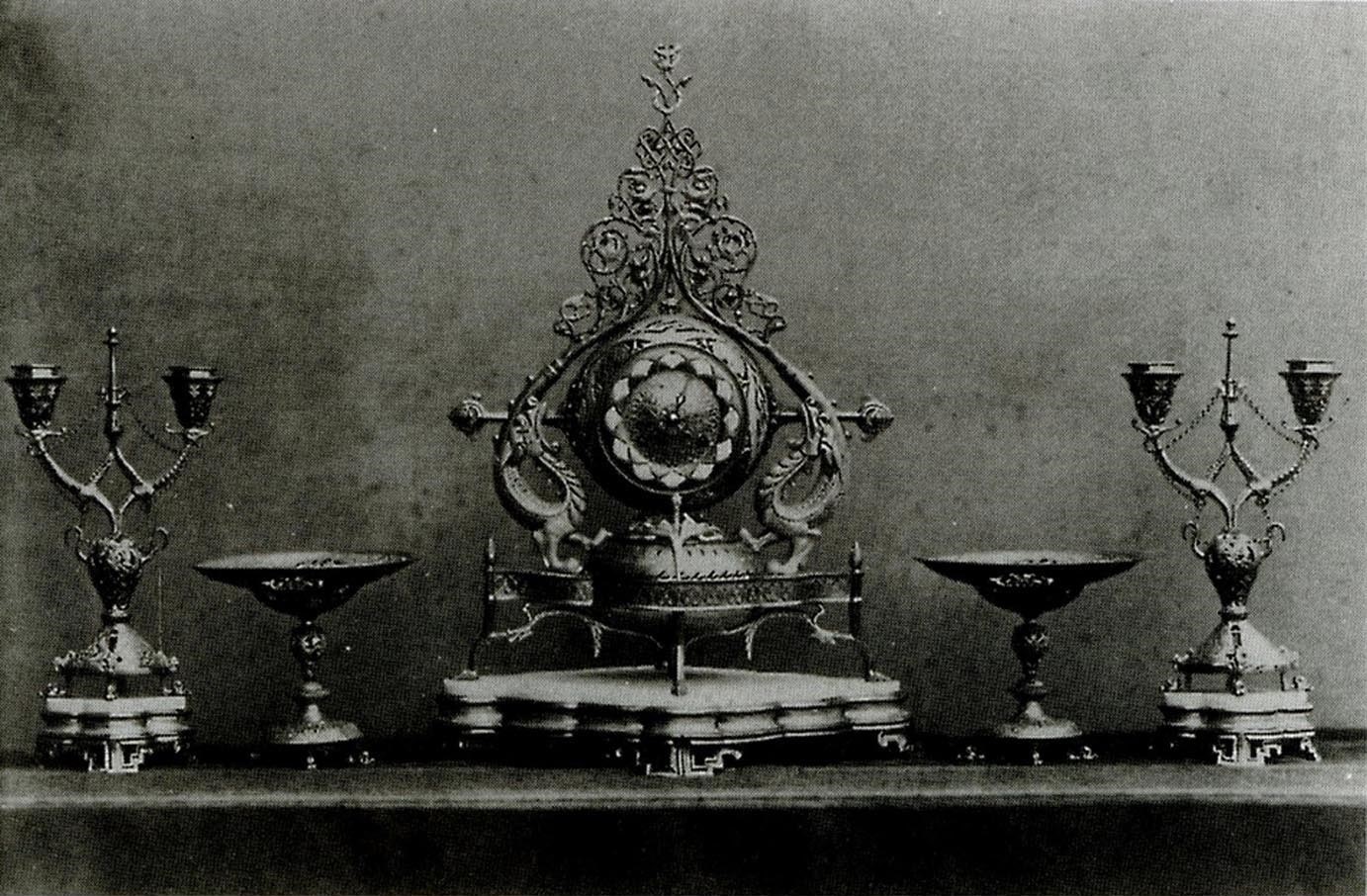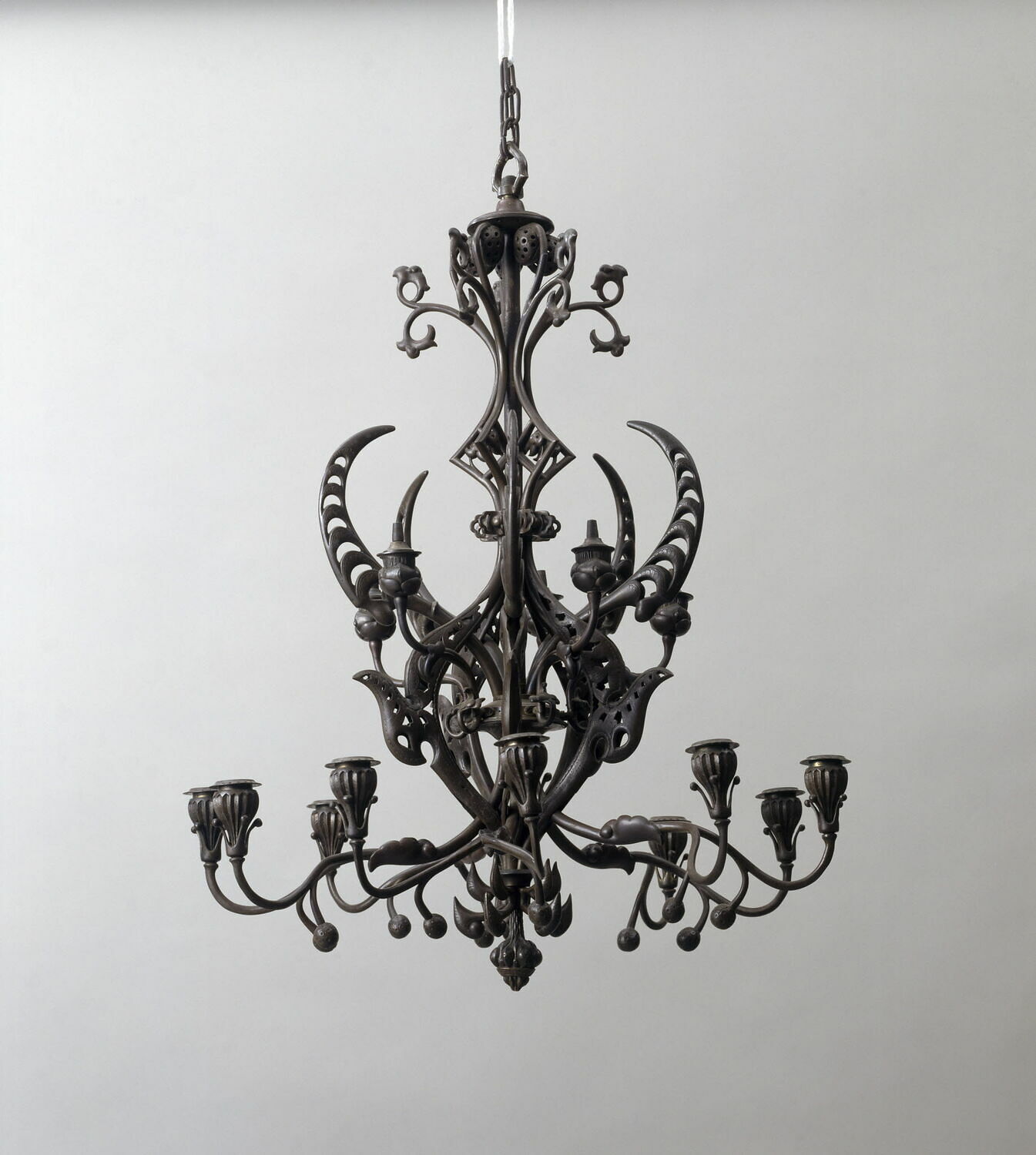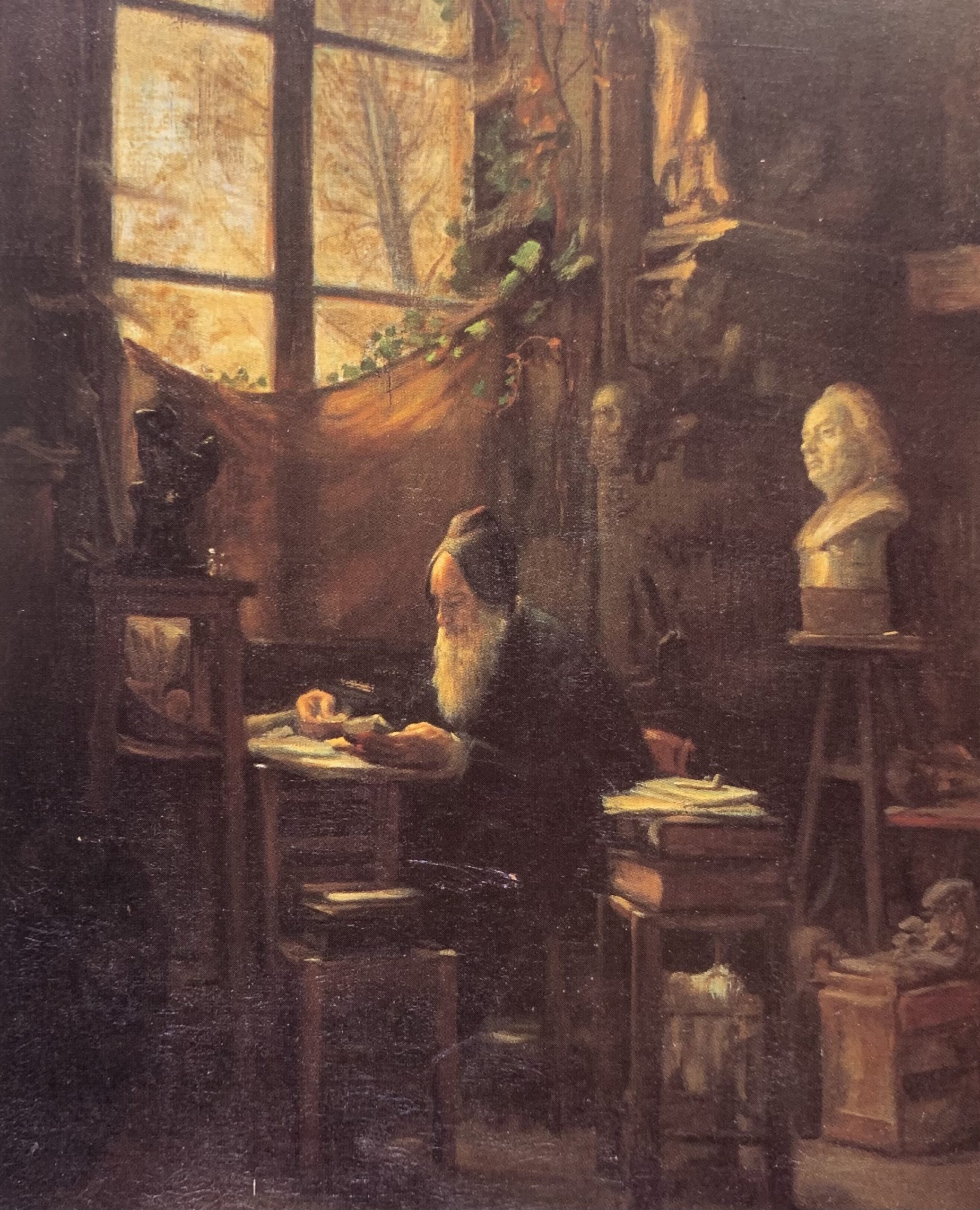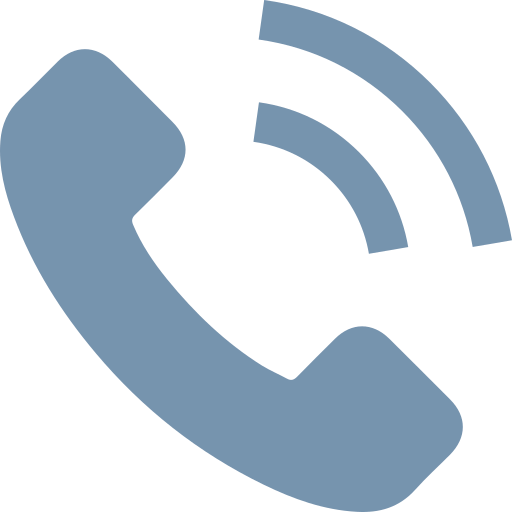The beginnings
Born in Paris in 1816, he follows free drawing class and gets into the Ecole des Beaux-arts of Paris when he was 15 years old. He became the student of the sculptors David D’Angers, James Pradier and Antoine-Louis Barye and becomes friend with many artists like Charles-François Daubigny, or even Louis Steinheil and Trimolet. From these friendships was born a solidary network on the Saint-Louis island, in which artists, writters or poets ou like Théophile Gautier and Charles Baudelaire, are meeting, talking, exchanging and producing works.
22 rue des Amandiers
Settled on the 22 rue des Amandiers with his friends, Victor Geoffroy-Dechaume dedicates himself to creations of silver models. Its beginnings are conclusive and major orders arrives through important silversmiths for who he creates shapes that are generally allegoric and inspired by nature. We can name for instance Wagner, Rudolphi, ou encore Freument-Meurice.
First works
It’s the ornamentist Claude-Aimé Chenavard (1798-1838), one of the main actors of the stylistic renew in the decorative art, breaking with neo-classicism from the 1830’s, who collaborates first with V. Geoffroy-Dechaume. Thus, he makes for him a “fish bowl” in 1835.
During the same years, he meets the silversmith Charles Wagner (1799-1841), who understood that the shape renew had to go by collaborating with sculptors He makes for him, on the next year following their meeting, models of women and animals figures, before proposing a model for a vase ordered by the Duke de Luynes in 1837.
This vase also called the Intemperance Vase, is known through engravings and fournished models. It was presented during the Exposition des produits de l’Industrie in 1839 on Wagner’s display who received a gold medal. d’or.
Charles-François Daubigny (1817-1878) (attributed to), Geoffroy-Dechaume, by night creating a silver piece, in front of the Intemperance vase’s model .
Drawing, Geoffroy-Dechaume archives
The wedding
He married Sidonie Mouton with who he has 4 children : Adolphe-Louis, who will later become his student and partner, Marie, Amélie and Valentine. The family lives on quai de Tourelle, quai d’Anjou and in the Valmondois village.
Exposition des produits de l'Industrie
Geoffroy-Dechaume is represented in the Exposition des produits de l’Industrie of 1844, although he’s almost not mentioned in the jury reports. However, he was qualified by one of the critics as “one of the most handy ornamentist-sculptor (…) of which the talent will not disapear in a higher sphere.” (Excerpt from L’Industrie). On this occasion, he collaborates with the silversmith Freument-Meurice for the realization of the Coupe des vendanges (grape harvest cup), of which an examplar is conserved in the musée du Louvre, another on the Château de Compiègne and another one on a private collection.
He also makes for Rudolphi the models for the Ondine vase and a wedding basket.
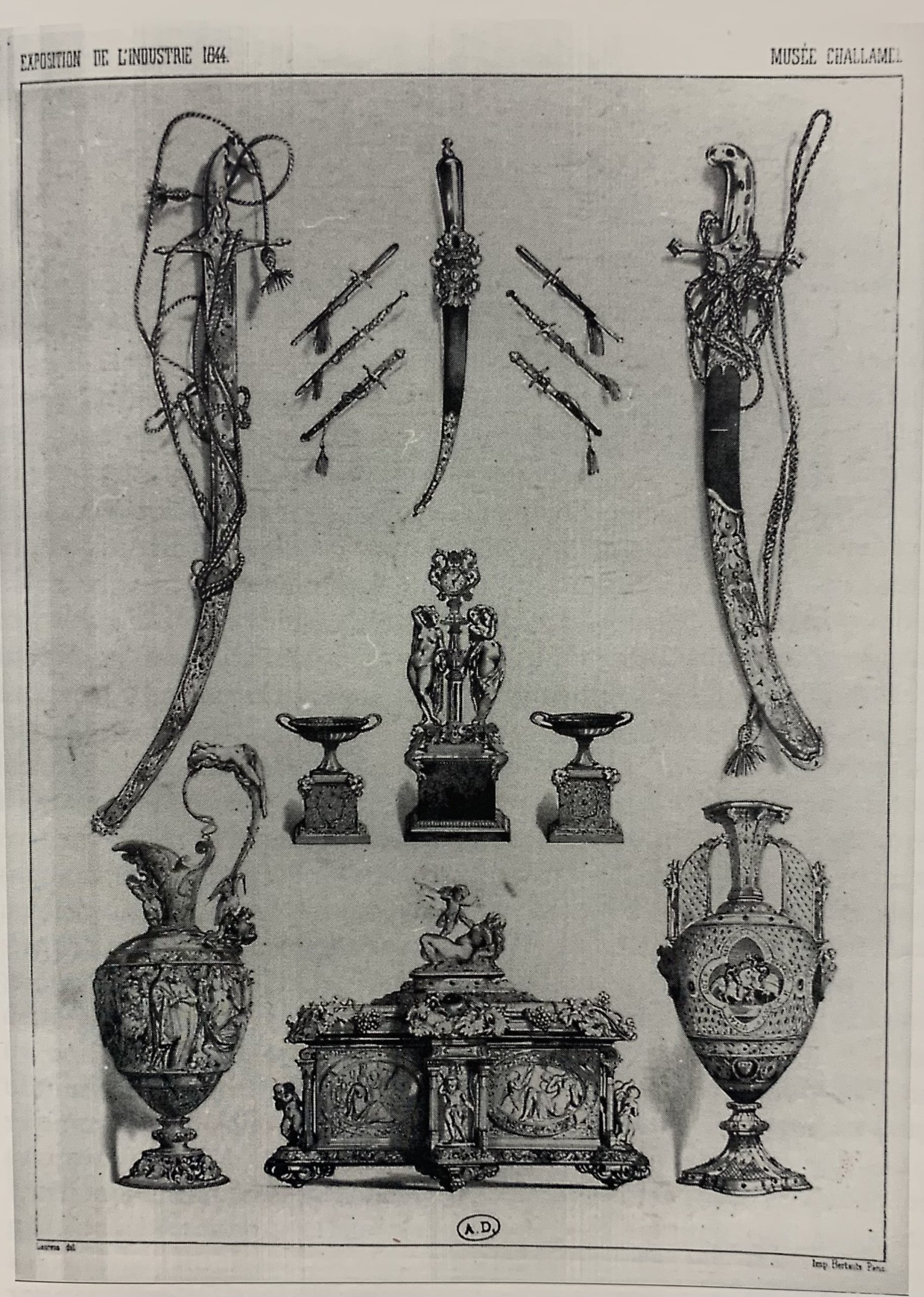
Engraving depicting the pieces exhibited by Rudolphi in the Exposition des produits de l’Industrie in 1844
The statuary and the restauration
It’s from 1848 that Geoffroy-Dechaume starts to be interested in the statuary and collaborates with reknown architects like Boeswillwald, Ruprich-Robert or even Lassus and Eugène Viollet-Le-Duc. Especially for the restauration of the Notre-Dame cathedral in Paris, for which he produced twelve bronze statues of apostles. For this work site, he also made one of his most famous work, the “Beau dieu” (beautiful god) occupying the trumeau of the central door of the cathedral large facade, the Last Judgement door. He also participates, still under the direction of the architects Lassus and Viollet-le-Duc, to the work site of the Sainte chapelle for which he also made twelve statues of the apostles. During his carreer, he received many order for statues and official monuments.
The first World's Fair
The silversmith Rudolphi and the bronze maker Delafontaine present during the first World’s Fairs of London and Paris silver pieces of which the models where furnished by Geoffroy-Dechaume. Especially for the first, in 1851, a pedestal table bought by Frederick VII, king of Denmark, and in 1855, a silver vase ” composed by Mr. Geoffroy-Dechaume and chiseled by Mr. Poux”.
The second, showed in 1855, some candalebrum, cups, boxes, etc. of which the models were made by Geoffroy-Dechaume, and a Persian clock.
For this occasion, Victor Geoffroy-Dechaume received a medal of first class partner.
Director of the Musée de sculpture comparée
In 1855, the sculptor is named director of the Musée de sculpture comparée, today became the Musée des Monuments Français, in the Cité de l’architecture in Paris.
Adolphe-Louis Geoffroy-Dechaume
His son exhibits in the Paris Salon from 1861 until 1910. Recognized as a sculptor, he especially worked on animal sculptures but also on marble bust from the ones made by his father.
Posterity
When he died in 1892, Geoffroy-Dechaume, left many works of art such as mouldings, photograph, drawings, stamps etc. A important part of them was given or sold to the Musée des monuments français and is now conserved there. Some of the works of art are signed by artists with who he worked like Marville, Mestral, Charles Nègre for the photographs Viollet-le-Duc or even Lassus, for the architecture drawings, Boulard, Daumier, Baudelaire, for the drawings etc.
The collection he creates he very important with more than 1400 mouldings, 385 photographs, 200 drawings, 700 stamps and 3000 archives pieces.
